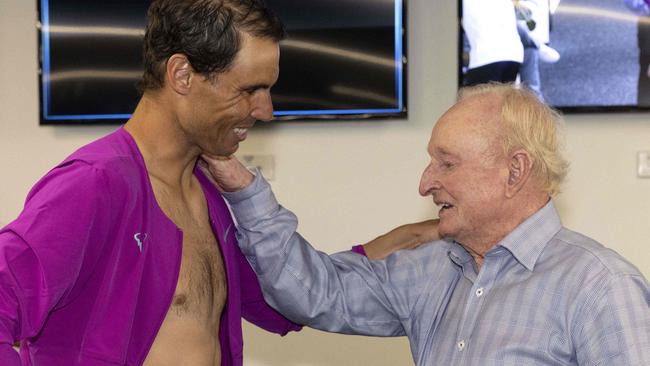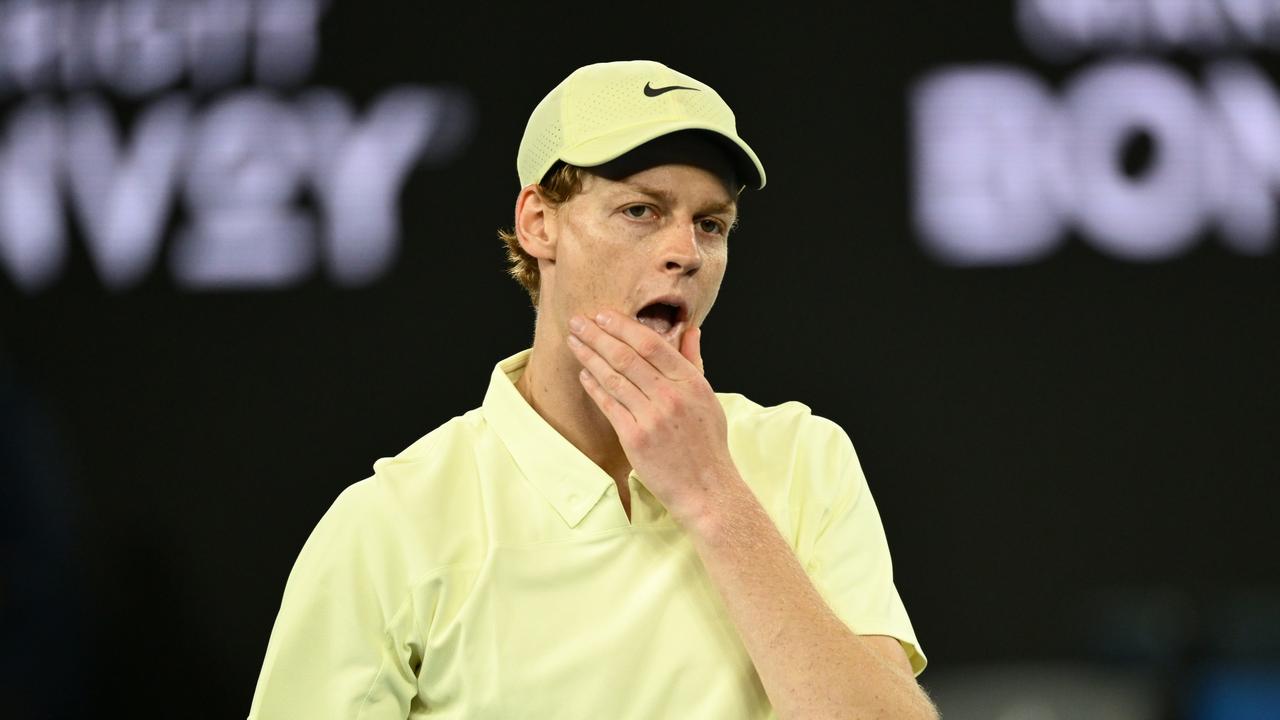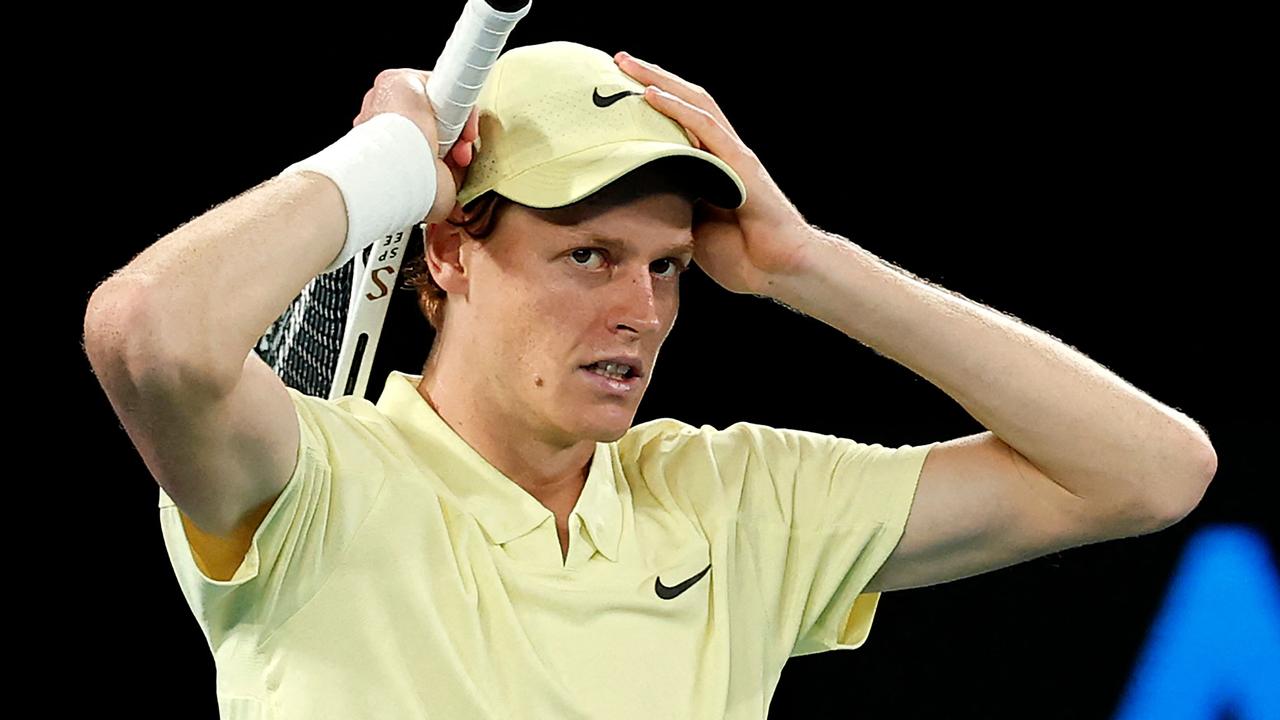Rafael Nadal and Rod Laver: Two true gentlemen share one timeless moment
The tale of Rafa, Rod … and a mystery no one will ever solve.

Rafael Nadal came back from the dead to win the Australian Open.
About 2am, he went to the Melbourne Park gymnasium and jumped on an exercise bike as though five sets against Daniil Medvedev hadn’t been enough of a workout. He was slogging through his warm-down when Rod Laver walked in.
Laver looked more exhausted than Nadal. He’s 83 years of age. A match finishing after 1am ain’t ideal for an octogenarian but the gentlemanly great of Australian tennis had willingly burned the midnight oil like the rest of us.
Nadal’s five-hour victory was so achingly tense and dramatic that if you weren’t on the edge of your seat, you were probably hiding under it. Laver doesn’t recognise Nadal’s power-laden, spin-crazed brand of tennis. His old wooden racquets would have snapped like twigs if he tried to hit a ball like this. What Laver does recognise in Nadal, though, is the sheer decency of the bloke. The humility. The work ethic, the mental toughness and the warrior spirit complementing the soaring skill that lifted the Spaniard to a second Australian Open and a historic 21st major title on Monday morning.
Gentlemen athletes – it takes one to know one. Laver might normally get the first available cab to his hotel. Yet Nadal’s marathon victory was so soul-stirring that Laver sought him out before he went off to bed. What a sight. A couple of likeable lefties right there. What a compliment to the bare-chested Nadal. What a timeless image. What a meeting of absolute gentlemen.
Nadal had come back from the dead a few times en route to winning the major that took him past Roger Federer and Novak Djokovic on the all-time tally. He thought his career had carked it six weeks ago. His foot injury was so bad he feared he’d never compete again. Then he thought his Open was over when he was forced into a fifth set by Canadian Denis Shapovalov in the quarter-finals. “Physically destroyed,” was how Nadal felt, but he won anyway. In his career masterpiece against Medvedev, when mind overcame matter, when he was so exhausted he didn’t have the energy to pump a fist until all was said and done, he truly looked a goner when trailing by two sets, 2-3 and 0-40. Umpire John Blom could have read the last rites instead of the score.
No superlatives do justice to what Nadal did next. He won the bloody thing – 2-6 6-7 (5-7) 6-4 6-4 7-5 as if his sheer willpower bent the match and a few balls his way.
Asked how he did it, Nadal gave his best quote of the night: “I don’t know.”
No one did. And now there’s no guarantee that the 35-year-old Nadal will be back. His next injury crisis will be his last. Nor can Laver’s future attendance be taken for granted. There will come a day when the trip from his home at Carlsbad, California, is too much for him. That day may not be far away.
If that’s how Laver and Nadal have gone out, hugging in the gym, holding each other’s arms, respect and admiration in their eyes, they’ve both finished on a good one.
From 2.40am, Nadal spent so long trying to explain his win that the sun was ready to come up before he was done.
Sport was unpredictable, he said. You keep fighting. Keep believing. Find solutions. Get lucky. He couldn’t remember much of the match. He was too tired. Too emotional. He said it was the greatest comeback of his career. The most meaningful victory.
Extended analysis left us and him none the wiser, though.
The real beauty of his win? It was in his first admission.
Even the bloke who did it couldn’t explain how he did.



